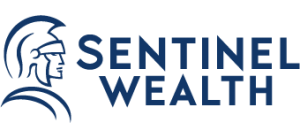Who do you trust? Who trusts you? Why?
“To earn trust, money and power aren’t enough; you have to show some concern for others. You can’t buy trust in the supermarket.” – His Holiness the Dalai Lama
Trust is accepted as a core ingredient in any success – without it, nothing is possible. It’s what most human beings rely on when making their biggest decisions. In fact, one dictionary definition of trust is “feeling safe when vulnerable.”
A lot of very successful people would say that their successes are attributable to trust in the right people. “Find the right people and just stick with them” is what one described as his secret of success.
At the same time, almost every time an investor loses money in either a scam or an investment, they explain their biggest mistake as having too much trust.
Trust is necessary but it simply isn’t enough.
I recently heard a podcast titled “Who the Hell is Hamish?” about a very successful conman by the name of Hamish McLaren. It explained his methods and tactics that were designed to build trust.
Hamish had a clear method which appears to be a textbook establishment of trust: He targeted vulnerable victims who had been introduced to him by reliable sources like marriage counsellors and spiritual people, so trust builds trust.
He took his time building relationships over months and sometimes years. He used stories to create sympathy and then used his own successes to convince his victims that he was a talented investor in his own right. It was classic trust building and then to add to his convincing method, he introduced scarcity – they had to seek Hamish, he didn’t chase them – to create the final illusion necessary before the big close. It worked: he stole over $7.5M.
The reality is many people trust the people they perceive as experts. Generally, it works – until it doesn’t. Then most get cynical about that particular topic and apply more rigorous scrutiny.
Today caution is necessary, now more than ever. The threats these days are greater and more sophisticated. And of course, the internet is the greatest source of financial risk as highly skilled criminal networks use very convincing methods and tactics to build their framework of trust. We can take nothing for granted, we must have a framework to enable us to fight back.
Protecting against risk whilst accepting that risk is part of life is a challenge. Nobody knows everything about everything – so trusting the experts is necessary. But being a lot more aware and vigilant is going to be essential in a world where criminals are more sophisticated, have more access and where financial hardship is more prevalent.
The victims who lost over $7.5m to Hamish would have been able to protect themselves with five simple rules. Let’s call these rules the way to establish Qualified Trust:
1. Don’t make emotional or rushed decisions – pressure is used as a tactic.
2. Understand the principles of any investment – don’t be intimidated; if it’s too difficult to understand, don’t do it.
3. Check under the bonnet – understand some of the details
4. Check that your money has been received by the correct party
5. Check past history – both the type of investment or transaction and the individuals involved, should have a traceable past. If it feels too good to be true, it probably is.
Trust is a wonderful thing, but it has to be earned – and even when earned, it can never replace vigilance. Trust me.


